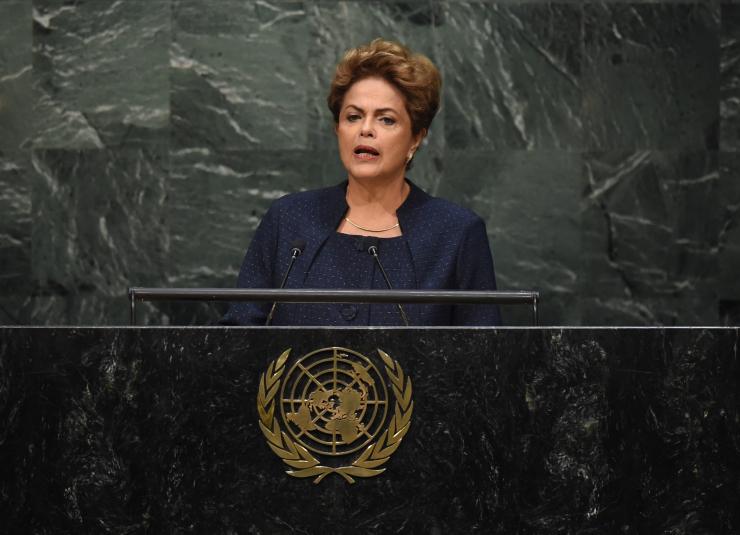-
Tips for becoming a good boxer - November 6, 2020
-
7 expert tips for making your hens night a memorable one - November 6, 2020
-
5 reasons to host your Christmas party on a cruise boat - November 6, 2020
-
What to do when you’re charged with a crime - November 6, 2020
-
Should you get one or multiple dogs? Here’s all you need to know - November 3, 2020
-
A Guide: How to Build Your Very Own Magic Mirror - February 14, 2019
-
Our Top Inspirational Baseball Stars - November 24, 2018
-
Five Tech Tools That Will Help You Turn Your Blog into a Business - November 24, 2018
-
How to Indulge on Vacation without Expanding Your Waist - November 9, 2018
-
5 Strategies for Businesses to Appeal to Today’s Increasingly Mobile-Crazed Customers - November 9, 2018
Brazil announces ambitious new goals to cut greenhouse gas emissions
In one of the last big meetings before a high-stakes climate summit in Paris later this year, Brazilian President Dilma Rousseff used the occasion to announce the rainforest-rich nation’s plans to reduce emissions blamed for the planet’s rising temperatures.
Advertisement
Brazil pledged on Sunday to slash greenhouse gas emissions by 43 percent by 2030 as its contribution to a United Nations climate agreement, but said it will include reductions from past efforts against deforestation to help it reach the target. It also indicated an “intended reduction” of 43 percent by 2030. “In spite of having one the world’s largest populations and GDPs our goals are just as ambitious, if not more so, than those set by developed countries”, Rousseff noted.
China pledged to cap carbon dioxide emissions around 2030 and make its best effort to cap them earlier.
According to SEEG, an independent emissions measuring system, Brazil’s greenhouse gases had already fallen 33 percent from 2005 to 2013 due to successful policies to repress illegal deforestation.
As per power generation, Brazil targets a non-hydro renewables share, including wind, solar and biomass, of 23% by that year.
That’s an increase from a joint announcement with the USA in June, when Brazil said it would double its non-hydropower renewable sources to 20% by 2030. “I am optimistic this plan will send the signal we need that the role of our region is to raise ambition on the road to Paris”, said Monica Araya, director of Costa Rica’s Nivela group.
Brazil also pledged to offset emissions coming from regulated deforestation, but has not provided details.
Environment Minister Izabella Teixeira told The Associated Press that Brazil’s targets were consistent with its historical responsibility to deal with the problem.
“In addition, the zero illegal deforestation goal is actually a step back from the country’s previous commitments”, she added. “In view of this we are rebalancing our budget and have undertaken a substantial cut in government spending”.
Advertisement
She said that global challenges such as conflict in the Middle East and Europe’s refugee crisis could be better solved by more collective action.





























